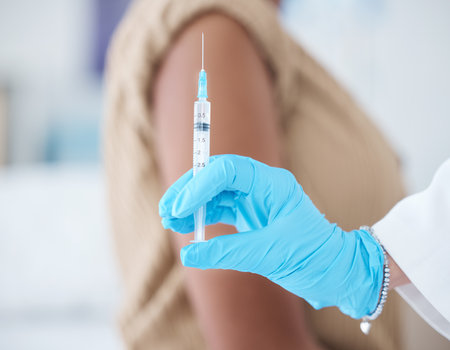Introduction: Changing Faces on the High Street
Wandering down any bustling British high street these days, one might notice a subtle but distinct shift in the faces that pass by. The telltale signs—smoother foreheads, sculpted jawlines, and more youthful complexions—are no longer the exclusive domain of women. A growing number of British men are now embracing injectables such as Botox and dermal fillers, marking a significant departure from traditional attitudes towards male grooming. This rise is not just about vanity; it speaks volumes about how beauty standards are evolving in the UK. Once considered taboo or even emasculating, non-surgical cosmetic treatments have found their place in mainstream male culture, reflecting broader societal acceptance and a redefinition of what it means to look and feel confident as a British man today.
Historical Attitudes: Breaking the Stiff Upper Lip
The phrase “stiff upper lip” has long been synonymous with British masculinity. Traditionally, British men were expected to be stoic, emotionally reserved, and indifferent to personal appearance beyond basic grooming. This cultural ideal—rooted in centuries of social conditioning—meant that taking an active interest in aesthetics was often considered frivolous or even unmanly. However, these long-standing norms are shifting, and the modern British man is increasingly comfortable challenging these boundaries.
Historically, mens grooming routines revolved around practicality and modesty rather than self-expression or enhancement. The pursuit of injectables, such as Botox or dermal fillers, would have been unthinkable for most men just a generation ago. But the evolution of societal attitudes towards masculinity and self-care has sparked a quiet revolution. Today’s men are not only more open about their insecurities but also willing to seek solutions that boost their confidence and sense of well-being.
To better understand this cultural shift, consider the following comparison:
| Traditional British Masculinity | Modern Perspective | |
|---|---|---|
| Emotional Expression | Reserved, understated, private | Open discussion of mental health and self-image |
| Aesthetics & Grooming | Minimal effort; practicality valued over appearance | Embracing skincare, fashion, and subtle enhancements |
| Attitude Toward Cosmetic Procedures | Sceptical or dismissive; seen as unnecessary | Normalised as part of self-care and confidence-building |
| Cultural Icons & Role Models | Toughness personified (e.g., James Bond, Churchill) | Diverse images including vulnerability and style (e.g., David Beckham) |
This transformation is not about abandoning tradition but rather redefining what it means to be confident and self-assured in Britain today. The growing acceptance of injectables among British men signals a broader change: one where looking after oneself—inside and out—is no longer at odds with masculine identity.
![]()
3. Psychological Motivations: Confidence in the Mirror
When exploring why more British men are seeking injectables, it’s impossible to ignore the powerful psychological drivers at play. For many, the decision isn’t simply about vanity; it’s rooted in a complex interplay of self-esteem, age-related anxieties, and evolving social expectations. In an age where appearances often speak before words do—be it on dating apps or professional networking platforms—British men are increasingly aware of how they present themselves to the world.
Self-Esteem and Self-Perception
For some, injectables offer a boost that goes far beyond the skin’s surface. Looking in the mirror and liking what you see can be transformative. When men notice signs of ageing or tiredness that don’t match how vibrant they feel inside, injectables become a tool to realign their outer appearance with their internal sense of vitality. This subtle enhancement often translates into greater self-confidence, not just personally but professionally—helping them navigate both boardrooms and social gatherings with renewed assurance.
Age Anxiety in a Youthful Society
Britain’s culture is one where youthful energy is celebrated and, sometimes, idealised. The pressure to maintain a fresh and dynamic appearance can weigh heavily on men approaching middle age or beyond. There’s a growing sense among British men that looking ‘past it’ might limit career opportunities or romantic prospects. Injectables promise a way to stave off these worries—softening lines and restoring volume without drastic changes, allowing men to age on their own terms while still feeling relevant in fast-paced urban environments like London or Manchester.
Social Pressures and Changing Masculinity
The stigma around male grooming has notably softened in recent years. With celebrities and influencers openly discussing their aesthetic treatments, there’s less secrecy—and more solidarity—among men considering similar enhancements. Peer influence, especially within certain industries or circles, encourages open conversation about self-care routines. For British men navigating these shifting expectations of masculinity, injectables are increasingly seen as just another aspect of personal upkeep—akin to hitting the gym or investing in a quality suit.
The Modern Man’s Reflection
The psychological motivations for choosing injectables reflect broader shifts in British society—a balancing act between tradition and modernity, individuality and conformity. Ultimately, for many British men, these treatments are less about chasing perfection and more about reclaiming confidence every time they catch their reflection.
4. Influence of Social Media and Celebrity Culture
In recent years, the British male aesthetic has been reshaped by a new wave of social media influence, celebrity openness, and the changing face of masculinity. Platforms such as Instagram and TikTok have become powerful catalysts for change, making injectables more mainstream among British men than ever before. British influencers, TV personalities, and especially footballers—cultural icons in their own right—have contributed significantly to this shift.
Gone are the days when conversations about Botox or fillers were shrouded in secrecy or considered “unmanly.” Now, scrolling through Instagram feeds reveals a tapestry of well-groomed men who openly discuss their skincare routines and non-surgical enhancements. This transparency, particularly from individuals with considerable public influence, has emboldened everyday men to consider similar treatments without fear of stigma.
The Role of British Celebrities and Footballers
Footballers like David Beckham and Jack Grealish, who have long set style trends for men across the UK, are now seen as ambassadors for male grooming. Their willingness to embrace modern beauty treatments sets an aspirational standard for fans. Likewise, reality TV stars from shows such as “Love Island” or popular YouTubers frequently discuss their cosmetic journeys, making these topics part of regular conversation among British men.
How Social Media Platforms Fuel Openness
Instagram and TikTok have created spaces where sharing before-and-after photos or honest reviews of injectables is not only accepted but celebrated. The result is a community-driven shift toward authenticity and self-care. Men can easily access content that demystifies procedures and provides real-life testimonials from relatable figures.
Key Influences at a Glance
| Influencer Type | Example Figures | Impact on Trends |
|---|---|---|
| Footballers | David Beckham, Jack Grealish | Set grooming standards; normalise injectables among sports fans |
| Reality TV Stars | Contestants from “Love Island”, Joey Essex | Open up discussions about cosmetic enhancements on mainstream platforms |
| YouTubers/Influencers | KSI, Joe Sugg | Create relatable content; break down stereotypes about male beauty routines |
The cumulative effect is that injectables have become not just a beauty trend but a form of self-expression embraced by British men across age groups. By leveraging the power of social media and the visibility of public figures, what was once a private pursuit has blossomed into a shared cultural phenomenon—fuelled by aspiration, relatability, and the undeniable influence of digital connectivity.
5. Professional Life and the London Look
London’s professional scene has always been a theatre of first impressions, where image often speaks before words are exchanged. In this fast-paced metropolis, being sharp, alert, and on-trend isn’t just a personal preference—it’s practically an unspoken requirement in many sectors, from finance to creative industries. The so-called “London Look” has evolved to mean more than just well-tailored suits or polished shoes; it now encapsulates a fresh-faced, energetic appearance that signals both vitality and resilience. For British men navigating this competitive landscape, injectables like Botox or dermal fillers offer a discreet yet effective way to maintain that youthful edge.
The city’s high-pressure work culture rewards those who can keep up not only mentally but also physically. Long hours, client-facing roles, and ever-present networking opportunities mean there’s little room for looking tired or worn out. Many men have shared with me their experience of feeling overlooked in meetings when their faces betrayed signs of fatigue—even if their minds were razor-sharp. Subtle treatments have become a practical tool to project confidence and enthusiasm, regardless of stress levels or lack of sleep.
There’s also a distinctly British sensibility at play: understated elegance. Men here aren’t necessarily seeking dramatic transformations. Instead, they value looking like the best version of themselves—refreshed but recognisable. This aligns perfectly with non-invasive injectables, which can smooth away lines or restore volume while still maintaining authenticity. As one London-based marketing executive confided to me over coffee in Soho, “It’s about keeping up without looking like you’re trying too hard.”
Ultimately, the rise of injectables among British men is closely linked to the city’s dynamic work environment and cultural appreciation for subtle self-improvement. It’s less about vanity and more about investing in one’s personal brand—a quiet nod to ambition that fits seamlessly into the fabric of London life.
6. Reducing the Stigma: Clinics, Conversation, and Community
One of the most striking changes in recent years is how injectables have become less of a hush-hush affair among British men. A stroll down almost any high street in the UK now reveals a proliferation of clinics offering everything from anti-wrinkle treatments to subtle dermal fillers. This increased visibility has done wonders in normalising these procedures. Where once an injectable was seen as something reserved for celebrities or kept behind closed doors, today it’s far more mainstream—accessible and approachable for everyday blokes.
Supportive conversations also play a pivotal role. Men are increasingly open about their experiences, whether over a pint at the pub or during a casual chat at work. These honest discussions replace outdated jokes and stereotypes with practical advice and encouragement. It’s not uncommon to hear friends swapping tips about reputable practitioners or sharing their personal journeys toward feeling more confident.
Community acceptance is another key driver. The British attitude towards self-improvement has evolved, moving beyond rigid notions of masculinity. There’s a growing recognition that caring about one’s appearance isn’t vain; it’s simply another form of self-respect and well-being. Local social groups, online forums, and even workplace wellness initiatives are helping to reinforce this shift, creating safe spaces where men feel empowered rather than embarrassed.
Ultimately, as clinics become part of the everyday landscape and conversations grow more open, the stigma attached to injectables fades into the background. This cultural shift signals a broader embrace of personal choice and self-care within British society—an evolution that feels both refreshing and long overdue.
7. Conclusion: The New British Normal
Reflecting on the changing landscape of masculinity in Britain, it’s clear that cultural and psychological shifts are transforming injectables into a new normal for British men. What was once considered a secretive or even taboo practice has evolved into an open expression of self-care, confidence, and personal style. From the grooming rituals of old-school barbershops to the cutting-edge clinics of today, British men are embracing the idea that looking after one’s appearance is not only acceptable but admirable.
This acceptance is driven by more than just media influence or celebrity trends—it’s deeply rooted in a broader societal understanding that taking pride in one’s looks doesn’t compromise one’s masculinity. On the contrary, it reflects a modern, balanced approach to well-being. Men are now encouraged to care for their mental health as much as their physical appearance, and injectables have found their place within this holistic self-care routine.
As these attitudes continue to evolve, we’re witnessing a subtle yet powerful shift in what it means to be a British man. Injectables are no longer something to whisper about behind closed doors; instead, they represent a thoughtful choice—another tool in the arsenal for those who want to present their best selves to the world. This newfound openness is shaping a future where authenticity, confidence, and aesthetics comfortably coexist in the everyday lives of men across the UK.


